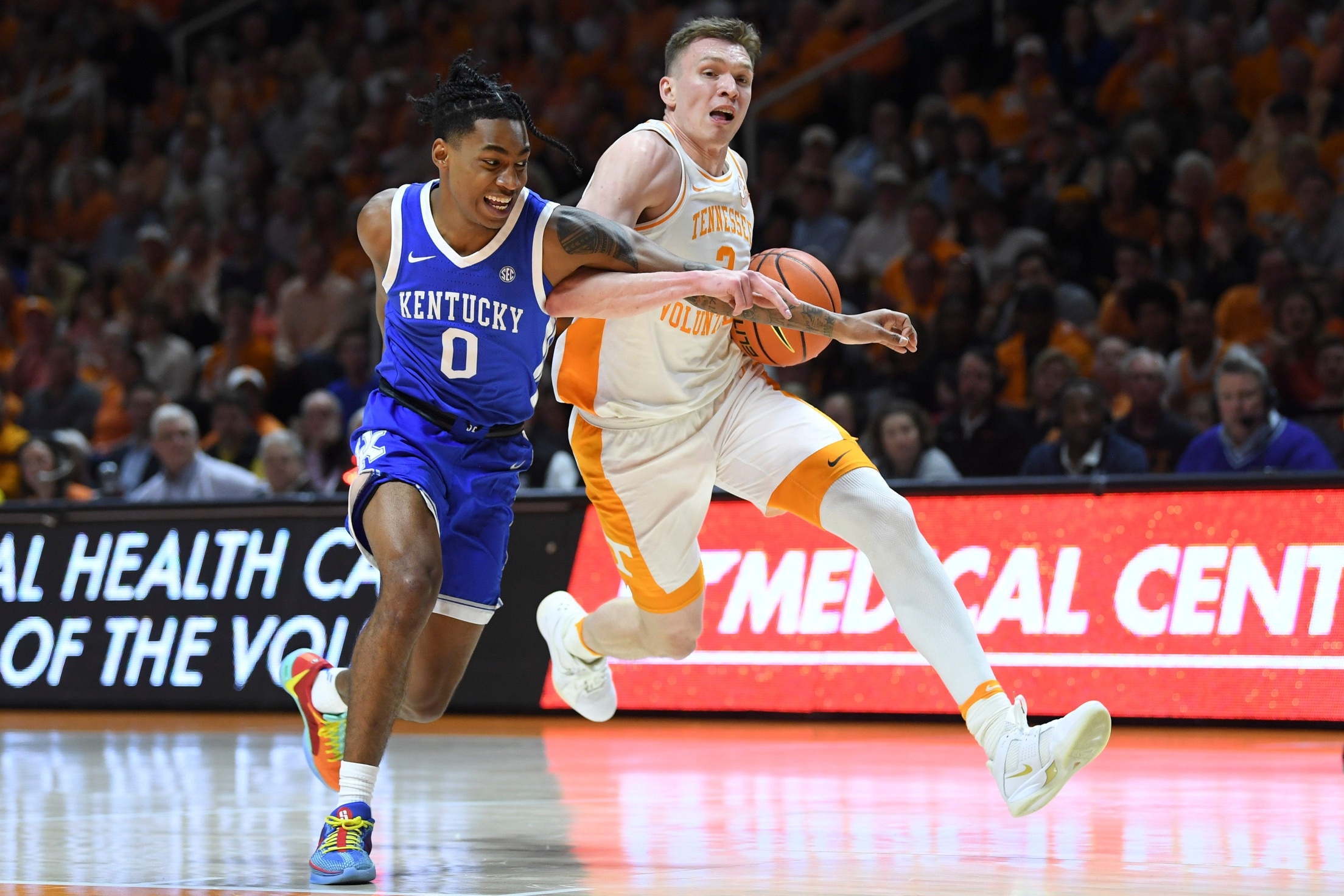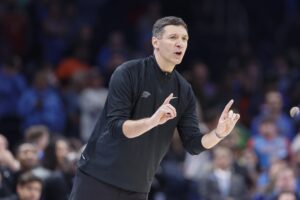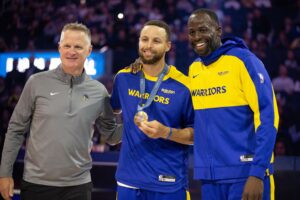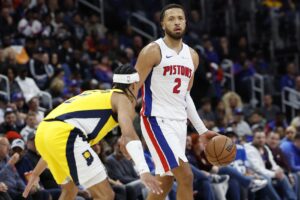In the 2024 NBA Draft, two promising young players—Dalton Knecht and Rob Dillingham—landed on teams with high expectations. Their paths to the league and their team contexts couldn’t be more different, but they share a common destination: contributing to championship-contending teams. Knecht, drafted by the Los Angeles Lakers, and Dillingham, picked by the Minnesota Timberwolves, arrive in rare situations where they can immediately help teams that made deep playoff runs in recent years. This unique entry for top prospects contrasts sharply with the usual route of rookies joining lottery-bound franchises.
NBA Business: Dalton Knecht and Rob Dillingham Took Different Paths But Got To The Same Destination
Breaking the Mold: Top Prospects on Playoff Teams
Historically, the NBA draft system promotes parity by sending elite talent to struggling teams. Top picks typically join rebuilding franchises looking to form the foundation of a future contender. However, both Dalton Knecht and Rob Dillingham buck this trend by stepping into established, competitive environments. The Minnesota Timberwolves reached the Western Conference Finals in 2024, signaling a breakthrough for their young core centered around Anthony Edwards and Karl-Anthony Towns. Meanwhile, the Los Angeles Lakers, though eliminated in the second round last season, made the Conference Finals just two years ago and remain committed to maximizing the championship window of LeBron James and Anthony Davis.
Both players find themselves in win-now scenarios, where their ability to immediately contribute will be crucial. Their advanced scoring skills, particularly their shooting, make them ideal fits for teams looking to contend. This uncommon path—top prospects landing on successful teams—presents a new dynamic, emphasizing the value they bring as complementary pieces rather than future stars expected to carry franchises.
Rob Dillingham: A Sharpshooter for Minnesota
The Timberwolves secured Dillingham’s rights in the 2024 Draft after trading a 2031 first-round pick to the San Antonio Spurs. Minnesota’s front office saw an opportunity to add one of the best shooters in the draft, despite not having a lottery pick. Dillingham, who shot 44.4% from three-point range on 4.5 attempts per game at Kentucky, arrives as a ready-made shooter. His long-range shooting is expected to translate well to the NBA, given the league’s growing emphasis on spacing and perimeter play.
In Minnesota, Dillingham joins a team with established scoring options in Edwards and Julius Randle. However, his role as a floor-spacer makes him an ideal complement to their inside-out attack. Dillingham’s ability to hit shots from deep will open lanes for Edwards’ driving and Randle’s mid-post game. His skillset fits into the Timberwolves’ need for more consistent outside shooting, an area that plagued them in their playoff run last season.
Despite not being a primary ball-handler, Dillingham’s sharp shooting and scoring instincts will ensure he gets minutes in key rotations. His ability to impact the game without needing the ball in his hands is crucial for a team with multiple established stars.
Dalton Knecht: A Steal for the Lakers
Like Dillingham, Dalton Knecht’s path to the Lakers was unexpected. Knecht, projected as a top-10 pick in many mock drafts, surprisingly fell to the Lakers at the 17th pick. Los Angeles wasted no time in snatching up the sharpshooter, recognizing his potential as an immediate contributor. Knecht shot 38.3% from three on 5.5 attempts per game across his college career at Northern Colorado and Tennessee, showcasing his ability to score at a high level from deep.
Knecht’s ability to score in multiple ways—whether from catch-and-shoot situations or off the dribble—makes him an ideal fit alongside LeBron and Davis. In Los Angeles, he won’t be asked to carry the offensive load but rather to be an efficient complementary piece. The Lakers struggled with consistent shooting last season, and Knecht’s shooting prowess offers a solution to that problem.
Moreover, Knecht’s size at 6’6” allows him to slot in at multiple positions, giving head coach JJ Redick flexibility in his lineups. His combination of shooting, scoring, and positional versatility means Knecht can contribute both as a starter or a key bench player. The Lakers, with championship aspirations, will look to Knecht to provide reliable scoring and spacing, helping them compete in the loaded Western Conference.
The Importance of Shooting in the Modern NBA
Both Dalton Knecht and Rob Dillingham bring an invaluable skill to their teams: shooting. In today’s NBA, spacing the floor with shooters is crucial for team success. Shooting is one of the few skills that consistently translates from college to the NBA, making both players’ three-point percentages an indicator of their potential impact. Dillingham’s 44.4% from deep at Kentucky and Knecht’s 38.3% across two colleges are marks of efficiency that will bolster their teams’ offenses.
With defenses having to respect their shooting ability, both players can help open up offensive opportunities for their teammates. For Minnesota, Dillingham’s shooting will create more room for Edwards and Towns to operate. For the Lakers, Knecht’s floor-spacing will ease the offensive burden on James and Davis, while also giving the Lakers much-needed firepower from the perimeter.
The Last Word: Dalton Knecht and Rob Dillingham Immediately Contributing
Dalton Knecht and Rob Dillingham are walking into rare situations where top prospects join playoff-caliber teams. Both the Timberwolves and Lakers are looking to build on recent playoff success, and these rookies will play a significant role in that quest. Their ability to shoot and score immediately sets them apart as valuable contributors, breaking the typical mold of lottery picks joining rebuilding teams. As they enter their rookie seasons, Knecht and Dillingham stand poised to make their mark on championship contenders.






